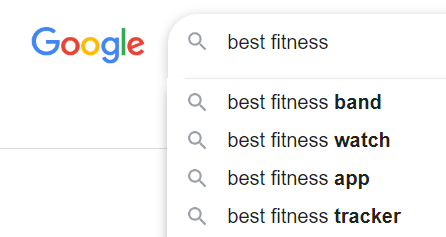So, you have finally decided to ditch your 9-5 and tap the freelance writing market. Yet, you are confused as to where to start. Then, you might want to read on.
Freelancing is the need of the modern era. Today, businesses prefer hybrid work models and writers like flexible employment. It works for everyone.
Yet, the competition in the freelance writing industry is stiff. There are thousands of writers fighting for client attention. It requires you to find stand-out ways to attract clients as a beginner.
This article is a guide to finding early success with freelancing. It includes proven tactics to simplify your transition from traditional employment to freelancing.
But before we learn about these tactics, let me quench your curiosity.
How much money you can make as a freelance writer?
Your earning potential as a freelancer depends upon your professional experience and the speed at which you produce content.
As a freelancer, you are paid based on the amount of content you write. It is usually a price per word or a fixed wage for a certain number of articles.
Some freelancers make as much as $10,000 every month. A recent survey found that 24% of freelancers make more than $90,000 every year. Long story short, there is tons of money in the freelance writing landscape.
What is freelance writing?
Freelance writing is a self-employed profession in which you make money by writing articles, case studies, press releases, or any other form of textual content for businesses that need them.
Here are 12 proven tactics to help you become a successful freelance writer.
12 Tactics to simplify your shift to freelancing.
- Decide your niche
- Write your first sample as a freelance writer
- Showcase it (build a portfolio) (ways to showcase)(can upload on LinkedIn for networking)
- Learn business communication
- Begin as a part-timer freelance writer
- Start networking
- Know your ideal clients
- Learn the basics of SEO
- Start pitching
- Learn time management
- Keep learning
- Be Patient
1. Decide Your Niche
Niche refers to the industry you will write about. It is a specific area that you want to develop expertise in. This way, you can stand out from generalist writers and charge higher rates for your work.
So, how do you decide your niche?
A niche should be a topic you can write confidently about. For example, if you are a cook, you can write about kitchen hygiene, cuisines, and recipes.
Apart from interest, you must assess the demand in your preferred niche. The higher it is, the better.
Look for relevant writing gigs on job boards and freelance platforms. Log in to Upwork Dashboard and search for your niche-related writing gigs.

As you can see, there are a lot of gigs seeking an expert marketing writer. A high number of gigs validates a higher demand.
2. Write Your First Sample
If you ever had a job as a writer, you must already have your work samples. If not, write a few excellent samples.
Rigorously edit your first drafts. Eliminate loose sentences, unwanted clauses, and jargon.
Your final draft should be an easy-to-understand content piece. It should solve a specific problem for your readers, leaving them with lots of value and actionable steps to follow.
Use tools to simplify the editing process. I recommend using Grammarly for grammar corrections and Hemmingway Editor for readability improvements.
3. Build a Portfolio
Self-publishing and guest posting are two popular ways to build a portfolio. I recommend guest posting for beginners. This way, your work goes through an editor and gets refined before publishing.
Additionally, clients are more keen to hire published writers.
On the other hand, self-publishing is not a bad option either. But make sure to get an expert to proofread your work before publishing.
4. Learn Business Communication
Business communication is an inherent part of a freelancing business. Most of it happens through emails. Yet, a client may choose to interview you. So, prepare for each scenario.

Dress appropriately for client meetings, and comp your hair. Be professional, and avoid flattering and freindifying your clients. These small efforts can go a long way and help you obtain repeat business.
Further, work on your cold pitches. Personalize them by adding client-specific pain points. The more your client can relate to it, the better.
Finally, maintain a professional appearance throughout the internet. Get a professional picture of yourself clicked, and use it throughout the internet. It helps strengthen your brand identity.
Pro tip: – Use a tool like PFP Maker to add a professional background to your profile picture.
5. Begin as a Part Timer
Quitting your 9-5 to pursue your freelancing dream is not a good idea. It could be months before you make a full-time living out of it.
Hence, while beginning, reserve your freelancing business for weekends. This way, you can catch a feel for it and see if it can replace your 9-5.
6. Start Networking
Take part in online conversations and express your thoughts. The more you make yourself visible, the higher your chances of getting hired.
For beginners, I recommend being active on LinkedIn. Keep up with the content published by experts in your industry and add your thoughts when appropriate.
Yet, your outreach must feel natural. Remember, it takes time to bond with professionals on LinkedIn. But, once you lay the groundwork for a partnership, you can obtain immense value.
Don’t be surprised if a well-nurtured contact sends a client your way. It happens all the time on Linkedin.

7. Know Your Ideal Clients
Your ideal clients are the businesses most likely to benefit from your services. Learning about their pain points and day-to-day struggles will help you craft personalized pitches and win them.
Hop on to Upwork and read a few gig descriptions in your niche. Find out common client problems that you can solve with your skills. For example, if a client wants to increase online visibility, you can build backlinks through guest posting.
8. Learn the Basics of SEO
Businesses prefer freelancers with adequate knowledge of SEO. This way, they can make sure their content reaches its intended audience.
Various things go into SEO-optimizing your content. One of them is keyword optimization. Keywords are the exact search terms people type in the search console. For example, “best fitness watch.”
You can find these terms by typing a seed word in the Google search console.

You can even use a tool like Wordstream to expand your keyword research criteria. It even tells you how many people search for a specific keyword and how hard it is to rank for it.
Once you identify your target keywords, use them evenly throughout your content to make it search engine-friendly.
Want more?
Read this article for an in-depth understanding of SEO.
9. Start Pitching
While you can approach clients in many ways, I recommend cold emailing for beginners. It sets you apart from the competition, significantly increasing your chances of landing your first writing gig.
A cold email is a direct pitch to your potential clients. Keep it short and simple, and answer these three questions.
- Who are you?
- How did you find them?
- How can you help them achieve their goals?
It should look something like this:
Subject: Boosting Your Business Growth with Compelling Case Studies
Dear [Name of Contact Person] (if you can find it, otherwise use a generic greeting),
My name is [Your Name], and I recently came across your website while browsing online. I was particularly impressed by the clutterless structure and formatting of your blogs.
However, I noticed that your case studies could benefit from some additional details. While they showcase your business capabilities, including specific results and data points would strengthen their impact on potential clients.
I am a freelance writer specializing in crafting story-driven case studies for marketing agencies like yours. I focus on highlighting measurable results, client testimonials, and actionable insights.
I am confident that, with my expertise, I can help you attract new clients and accelerate your growth.
Would you be open to a quick 15-minute call to discuss this further?
Thank you for your time.
Sincerely,
[Your Name]
[Your Website/Portfolio Link (Optional)]
10. Learn Time Management
The beauty of freelancing is that it lets you own yourself. You get to choose your working hours.

Yet, at times, managing a business can be overwhelming. It requires you to stay disciplined and complete all your projects on time. Otherwise, you can end up harming your reputation and lose clients.
Hence, you must reserve enough time to meet your project deadlines and keep your client happy. I recommend using deep work techniques and avoiding all distractions while working. You can also try the famous Pomodoro Technique to maximize your productivity.
11. Keep Learning
Acquiring new skills and certifications can help you attract new employment opportunities. It adds to your value proposition and attracts high-paying clients.
Upskilling is not about finding something new to master. It is about identifying skills that complement your primary expertise.
There is tons of helpful content on YouTube and Google to help you upskill. Further, you can even consider enrolling in an online course.
12. Be Patient
Success at freelancing requires long-term commitment and patience. Unlike traditional employment, you won’t have a steady stream of projects handed over to you. It can be a while before you find good clients and secure repeat business.
As a freelancer, your income will increase gradually, not overnight. Hence, you must set realistic goals and celebrate small milestones. Just enjoy the processes, and do not let it overwhelm you.
Final Words
Freelancing is a business, and it functions like one. Apart from writing, it requires an adequate understanding of business. You must make a professional business profile, promote your services, and communicate with your clients.
Stick to a schedule that works best for you and enjoy the process. Remember, you’ll improve with practice and earn substantial rewards for your hard work.
Frequently asked questions
1. Is freelance writing a good career?
Yes, it is. People make as much as $10,000 monthly working as freelance writers.
2. How hard is it to get freelance writing work as a beginner?
Quite competitive. Especially, when you target popular platforms like Upwork and ProBlogger. Yet, you can ace the game by differing your client approach practices. I recommend cold pitching as a beginner.
3. What are some profitable freelance writing niches?
Here are some trendy freelance writing niches.
- Cryptocurrency
- Nft
- Personal Finance
- Health and Fitness
- Education
- Travel
Yet, don’t let profitability alone dictate your niche, also consider your interests and hobbies.

Ayush is the writer and editor at Excelatwriting. He is fond of reading books, playing chess, and tracking. He currently lives in Indore with his best friend and talks about marketing.
